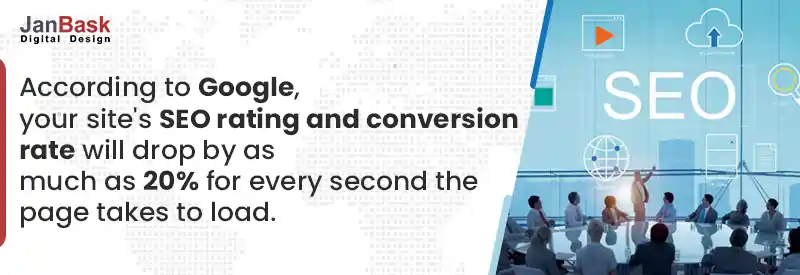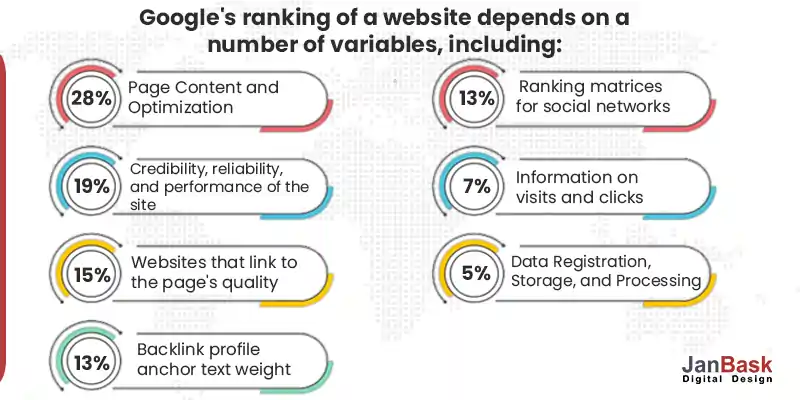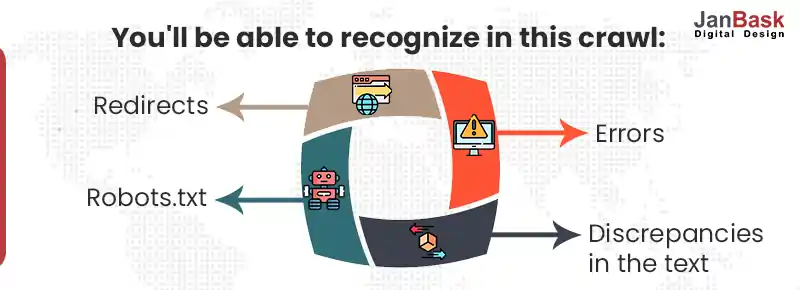
Optimizing organic search results should be your top focus when developing an SEO plan for a site serving a higher education audience. If you want to know how to get people to visit your site, you need to know how Google pages rank. Developing a search engine optimization (SEO) plan for a website devoted to higher learning requires careful consideration of Google's search engine results page (SERP) criteria.
With so many other options available, it's important to put in the time and effort required to optimize your site for search engine results page (SERP) rankings. You can improve your long-term planning by developing a more tactical approach.
When it comes to higher education SEO services are often disregarded despite their critical role in attracting new students and retaining current ones. An increasing number of prospective students are conducting online searches for educational institutions; therefore, it is essential that your institution appears in relevant results.
SEO for higher education can help your college or university's website rank higher in search engine results, increase organic search traffic, improve the user experience, and eventually attract more prospective students. Fortunately, search engine optimization is not voodoo and can be approached quite strategically to produce results.
Are people able to locate your educational institution's online resources? Here are the 14 essential higher education SEO tips for improving your higher education website's reach and standing out from the crowd.
Want to Improve your Higher Education Website's Reach?

People today often use their smartphones for five hours every day. Recent statistics reveal that 72% of all internet activity, including searches, is performed on mobile devices.
You really must ensure that your website for a university or college is compatible with mobile devices. If you care about search engine optimization, though, you should consider how long it takes for individual pages and entire websites to load. Customer happiness and conversions will take a hit if your website and web pages take too long to load.
In addition, search engine spiders are not fond of slow loading times.

Make sure all the text on educational institutions' websites can be read by crawlers to improve their search engine rankings. Importantly, make use of alternate textual descriptions and closed-captioning for all multimedia files.
Similar or identical content on multiple websites is something Google and other search engines view very negatively. That's why it's important for educational institutions' websites to work with higher education SEO agencies to provide unique, engaging content that search engines will reward highly.
Web pages associated with institutions of higher learning should employ strategically chosen keywords to improve their search engine rankings. When implemented properly, keywords can significantly improve both on-page and off-page SEO.
After conducting extensive keyword research, you should utilize keywords judiciously, including only a few instances in the meta tags, meta descriptions, meta titles, and body content. Keep in mind that Google's algorithms may punish you for using too many keywords.
When it comes to search engine optimization and developing a trustworthy online reputation, both internal and external links (backlinks) can make a significant difference. Link back to relevant landing pages (entrance, courses, extracurriculars, etc.) from journals, scholarly work, and news stories published by members or about the institutions.
It is highly recommended that you choose the best higher education SEO agency that understands your vision and stays at the top of their game to deliver everything as per your needs.
It's no secret that prospective students place a high value on a university's academic offerings when making their decision. Consequently, you should direct your search engine optimization efforts toward the most in-demand academic offerings your institution is recognized for.
To ensure that websites associated with higher learning are given the attention they deserve in terms of search engine optimization. It's crucial that you have a firm grasp on how Google determines the rankings of websites and blogs. This is crucial when developing an effective higher education SEO strategy for a website devoted to higher learning.
Google's importance and relative weight are often misunderstood. If you want to know how to optimize your website using Google's weighted percentage system, you can utilize an inverse function calculator.

Assuming you've done the math indicated above, you can put your higher education SEO strategies into action.
When applying to college, most people have the same concerns. Students' most commonly asked questions can be precisely determined using the inverse function calculator. It is preferable to employ artificial intelligence to answer such questions by compiling a database of such questions and recording the answers to such queries.
Create a database of your rivals by listing them all and then using the inverse function calculator to get their contact information. It would be wise to investigate the tactics they are doing to reach out to kids everywhere. When you dissect their tactics, you'll be astonished to see that you already possess all the knowledge necessary to make your site a smashing success amongst students.
A higher education SEO firm conducts a SWOT analysis (Strengths, Weaknesses, Opportunities, and Threats) of your competitors to help you stand out.
During the analysis of higher education SEO, verify your online presence by doing an audit. Getting an overview of the landscape is an important first step toward successful digital marketing. An audit of your website can help you spot problems that prevent visitors and crawlers from interacting with and indexing your site effectively.

Once problems have been found on your website, a prioritized list of actions should be produced, along with due dates.
When potential customers conduct a search for your business or a business like yours, local search engine optimization (SEO) offers them useful information, such as your location and contact details. It raises a school's visibility in search results, increases site traffic, and attracts more prospective students.
The first step is to take ownership of your institution's Google My Business profile. Be sure to include up-to-date information (such as tuition rates), photographs of the school, and complete contact information.
The aforementioned actions are commendable, but how will their success be gauged? When it comes to marketing priorities, Google Analytics is often overlooked (or whichever analytics platform you use). Data reliability is essential for making important judgments. After pinpointing the source of your problems, head to the Google Analytics help center to learn how to fix them. This requires the help of an expert higher education SEO company if you are new to using the tool.
Reaching out to prospective students might be facilitated by increasing your profile's visibility across various social media platforms. Prospective students can ask questions and get answers from you in real-time via social media.
This will attract more visitors and improve their overall experience, giving them a favorable impression of your educational institution. You can network with other organizations in the education sector, such as government agencies, universities, and schools, all of which may refer students your way.
The keywords you use have a high degree of seasonality, so it's crucial that you know which ones will bring in visitors and when.
Google Trends can be used to see when and where in the country potential students are searching for information that could be of interest to you. You can use Google Trends to find "Breakout" terms or those that have seen a search volume spike of above 5,000%.
If you want your college or university to rank highly in organic search results and have accurate information displayed in Google's College Search, ensure that Wikipedia's page is up-to-date and error-free. Google added a new function to Search with the intention of assisting students in their college search.
Your business can expand with the help of a higher education SEO company for less money and time than it would take you to do it all by yourself. In addition to keeping your institutions up-to-date on the digital trends they require, they also provide input from specialists and experts who are well-versed in the most recent developments.
If you've narrowed down your options for your online marketing campaigns, you're probably ready to get started. Regardless, if you are in the higher education industry, you are missing out on a vital component of your online presence if you aren't working with a higher education SEO agency.
Let's pretend for the moment that you're thinking about contacting clients solely via advertisements and your website. If that's the case, you're cutting yourself off from modern forms of communication such as email, social media, a blog, and SEO techniques that are surprisingly dated. The goal of an SEO firm is to connect with your target audience whenever and wherever they may be online.
Hiring a higher education SEO company will free you up to focus on running your schools and improving other operational factors. There is zero time spent on setup, orientation, or management.
Since agencies function independently, no supplementary funding is required. You also save on the recurring costs associated with a full-time employee, such as medical care, bonuses, and vacation pay. Furthermore, many SEO firms charge by the project, allowing you complete control over the time frame, location, and budget of your campaign. Therefore, a well-run organization can eventually mean substantial savings for your institutions.
Higher education SEO firms routinely look into your company, uncovering new trends that could be beneficial and even new competitors you were unaware of. To get a system to consider both internal and external factors, they need to know what your competitive environment and industry are like. You won't have to go looking for any of this on your own, and you just might learn about some crucial opportunities you would have missed otherwise.
If you're looking for a Higher Education SEO Company, look no further. We have what it takes to determine the most important key performance indicators for your educational institutions, tailored specifically to your needs. We can also identify relevant measurements across channels, providing you with feedback on all your communications and analyses.
Amazingly, in the digital world, you can quantify anything.
When you hire an SEO firm to handle this for you, you can also gain access to insightful new information about your organization's target demographic and the online visibility of your brand. You can expect top-notch service because your project will be handled by knowledgeable professionals who are also current on the latest industry data and trends.
If you want prospective students who are likely to enroll at your university to find it, an SEO campaign is the most cost-effective approach to do it.
You may use SEO to understand what your competitors are up to, create content that stands out from the crowd and gets shared, and generally increase the credibility of your website and your educational institution in the eyes of search engines.
You already know that SEO can feel like shooting at a shifting target, with reports that Google makes nine changes to its search algorithm every day. Whew, that's a lot of alterations!
However, you need not become an expert immediately. With the help of these easy guidelines, you may get started with SEO for higher education. Alternatively, you can also search for the best SEO agencies for higher education that can guide you through the whole journey.
Looking for the best SEO Agencies for Higher Education ?

L
Interesting tips
J
Very well put
H
All major points covered
M
Nice tips
P
Great read